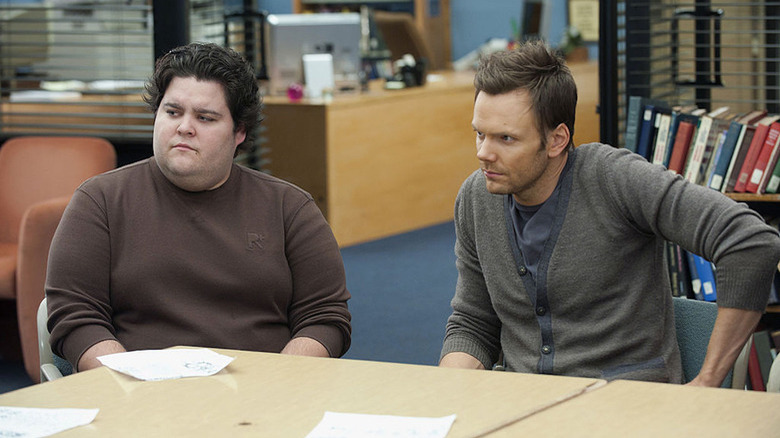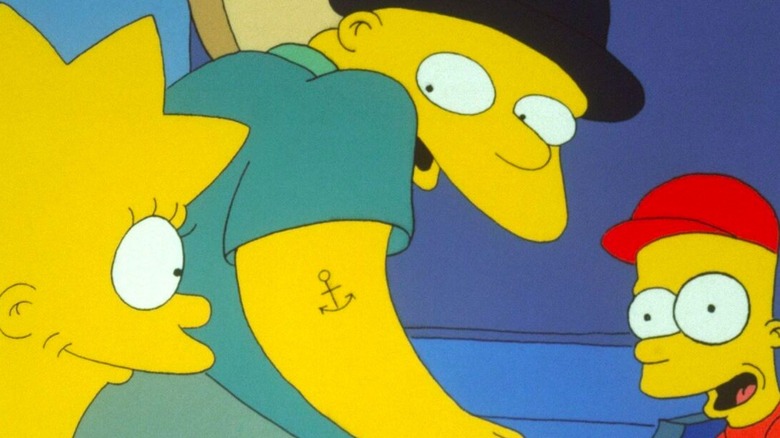With any TV present that goes on for thirty-six years and counting, there’ll inevitably be one thing from an early episode that comes again round to hang-out it. The “South Park” showrunners have written complete episodes apologizing for poorly-aged takes they gave of their early years, whereas “Household Man” has had their characters outright say that they are now “phasing out the homosexual jokes” that have been all too frequent of their early seasons.
In the meantime, “The Simpsons” ended up the middle of a nationwide dialog round 2020 in regards to the ethics of getting white voice actors play non-white cartoon characters, resulting in the present giving Dr. Hibbert a brand new voice actor who sadly could not fairly pull off the character’s trademark snigger. They’ve additionally quietly phased Apu out of the present totally, after comic Hari Kondabolu sparked a nationwide dialogue over the character’s legacy as one of many solely Indian characters so many People have been accustomed to for many years. The fandom debate round each these points is ongoing, and it is nonetheless messy and heated to say the least.
One of many present’s greatest apologies, nevertheless, is one thing that does not appear to be talked about fairly as usually among the many followers: the erasure of season 3’s “Stark Raving Dad.” In 2019, the streaming service Disney+ quietly pulled the episode from its platform, and the “Simpsons” producers selected to tug the episode out of syndication. This was in response to the rising allegations that the episode’s fundamental visitor star, Michael Jackson, had molested a number of kids.
Though Jackson had died ten years earlier and was by no means discovered responsible in a court docket of regulation, the HBO documentary movie “Leaving Neverland” in 2019 introduced lots of the allegations in opposition to him again into the general public eye, and so they appeared fairly damning. Govt producer James L Brooks described banning “Stark Raving Dad” as “the one option to make,” and added, “I am in opposition to book-burning of any sort. However that is our guide, and we’re allowed to take out a chapter.”
It is a part of an ongoing debate about messy TV historical past
“Stark Raving Dad” is the one out-right banned episode of “The Simpsons” in America, though it wasn’t the primary to be pulled from syndication. After 9/11, networks stopped airing reruns of “The Metropolis Of New York vs. Homer Simpson,” a 1997 episode that very prominently featured the Twin Towers. However this episode was introduced again after a couple of years underneath the idea that People had healed from the traumatic occasion; in the meantime, it would not look like “Stark Raving Dad” is being introduced again any time quickly. That is as a result of the New York episode was eliminated merely out of tact, whereas the Michael Jackson-centric episode was eliminated out of a way of morality, with the principle query right here being: is it morally acceptable for the present/community to revenue off of that episode?
Comparable conversations have performed out over time round earlier TV episodes that featured white characters carrying blackface. Whole episodes of exhibits like “Group,” “It is At all times Sunny in Philadelphia,” and “Mad Males” have been pulled from sure streaming platforms for his or her use of blackface, whatever the context or (within the case of “Mad Males”) the time interval the present was depicting. The argument in favor of banning these episode is usually that they promote dangerous/insulting stereotypes that not replicate (or slightly, mustn’t replicate) fashionable sensibilities. On the opposite facet, the argument in opposition to banning these types of episodes is that it comes throughout as a shallow try to sanitize historical past, when it might be higher to let these episodes stick round and function an uncomfortable reminder of how the world was.
So, how was Stark Raving Dad as a Simpsons episode?
Even in case you ignore the enormous elephant within the room, “Stark Raving Dad” is not top-of-the-line episodes of the persistently sturdy third season, nevertheless it nonetheless serves as an fascinating look again at Michael Jackson’s status in 1992. There have been the compulsory jokes about Jackson’s lightening pores and skin colour in fact, in addition to a common sense that one of the best days of Jackson’s profession have been behind him, however he was nonetheless very extensively recognized and beloved all through the entire world. When Bart lets slip that Michael Jackson’s visiting Springfield, your complete city is whipped into an excited frenzy.
The episode additionally brings an air of mysticism to Jackson, refusing to verify till the very finish whether or not the Jackson impersonator (precise identify: Leon Kompowsky) is really him or not. This confusion was heightened by the best way Michael Jackson himself wasn’t formally credited for the episode till years later, resulting in lots of debate over whether or not that was his voice we have been listening to. Complicating issues additional was the reveal that sure, that was Jackson’s voice through the common dialogue, nevertheless it wasn’t his voice at any time when the character sung; the singing was carried out by a soundalike actor Kipp Lennon, because of sophisticated contractual obligations Jackson had along with his recording studio.
The top result’s that “Stark Raving Dad” continues to be an entertaining watch, however provided that you have a look at it as a historical past lesson a few extra harmless time in American popular culture. There isn’t any simple reply for what to do with an episode like this, however its adoration for Jackson does not less than assist clarify why the world was so keen to brush the allegations in opposition to him underneath the rug. (The primary main allegation in opposition to Jackson was method again in 1993, 26 years earlier than “Leaving Neverland” launched.) He was the King of Pop, in any case, and he sang that candy Completely satisfied Birthday track for Lisa; few wished to imagine he was able to such horrible issues.





